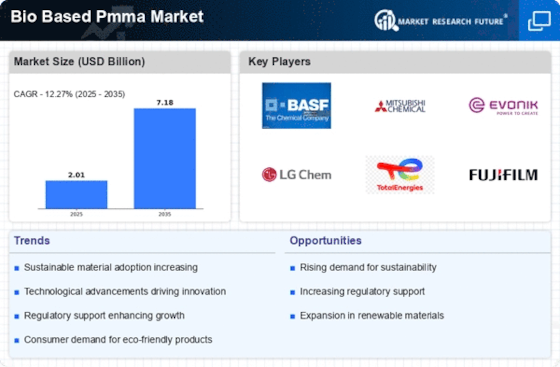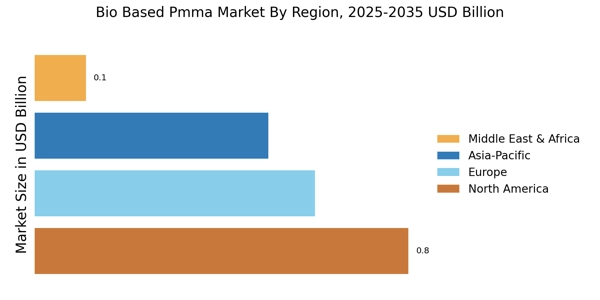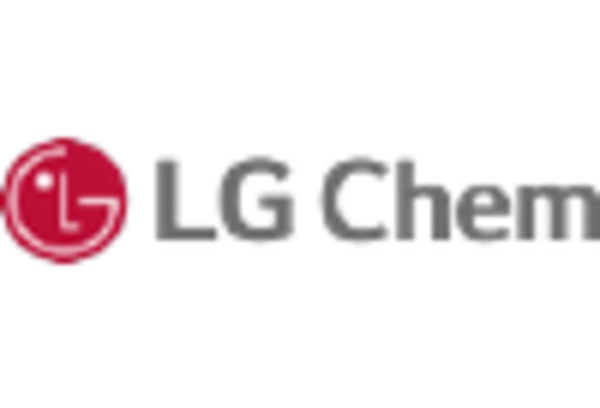Government Incentives and Policies
Regulatory frameworks and government incentives aimed at promoting sustainable materials are likely to bolster the Bio Based PMMA Market. Various governments are implementing policies that encourage the use of bio-based products through subsidies, tax breaks, and research funding. For example, initiatives aimed at reducing plastic waste and promoting circular economy practices are becoming increasingly prevalent. These policies not only support the development of bio-based materials but also create a favorable market environment for the Bio Based PMMA Market. As such, the alignment of governmental support with industry goals may lead to increased investment and innovation in bio-based PMMA.
Innovations in Production Techniques
Technological advancements in the production of bio-based materials are likely to play a crucial role in the Bio Based PMMA Market. Innovations such as improved polymerization processes and the utilization of renewable feedstocks are enhancing the efficiency and cost-effectiveness of bio-based PMMA production. For instance, recent developments in catalytic processes have shown potential to reduce production costs by up to 20%. This could make bio-based PMMA more competitive against traditional PMMA, thereby expanding its market share. As these innovations continue to evolve, the Bio Based PMMA Market may experience accelerated growth, driven by enhanced production capabilities.
Rising Demand for Eco-Friendly Materials
The increasing consumer awareness regarding environmental sustainability appears to be a pivotal driver for the Bio Based PMMA Market. As industries strive to reduce their carbon footprints, the demand for eco-friendly materials has surged. Reports indicate that the bio-based plastics market is projected to grow at a compound annual growth rate of approximately 15% over the next five years. This trend suggests that manufacturers are likely to pivot towards bio-based alternatives, including PMMA, to meet consumer expectations and regulatory requirements. Consequently, the Bio Based PMMA Market is expected to witness a significant uptick in demand as companies seek to align their product offerings with sustainable practices.
Growing Applications in Diverse Industries
The versatility of bio-based PMMA is likely to drive its adoption across various sectors, including automotive, construction, and electronics. The Bio Based PMMA Market is witnessing a growing trend where manufacturers are exploring new applications for bio-based PMMA due to its favorable properties such as transparency, durability, and UV resistance. For instance, the automotive sector is increasingly utilizing bio-based PMMA for lightweight components, which can enhance fuel efficiency. This diversification of applications suggests that the Bio Based PMMA Market may continue to expand as industries recognize the benefits of incorporating bio-based materials into their products.
Consumer Preference for Sustainable Products
The shift in consumer preferences towards sustainable and ethically produced products is emerging as a significant driver for the Bio Based PMMA Market. As consumers become more environmentally conscious, they are increasingly seeking products that align with their values. This trend is reflected in Market Research Future indicating that over 70% of consumers are willing to pay a premium for sustainable products. Consequently, manufacturers are compelled to adapt their offerings to meet this demand, leading to a rise in the production of bio-based PMMA. The Bio Based PMMA Market is thus likely to benefit from this consumer-driven shift, as companies strive to enhance their sustainability credentials.

















